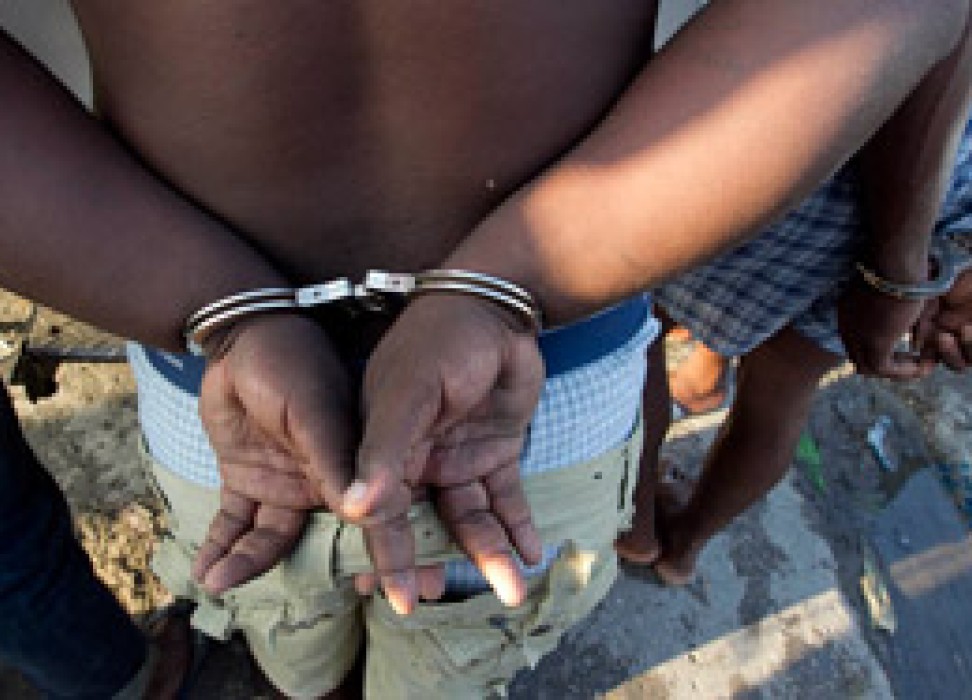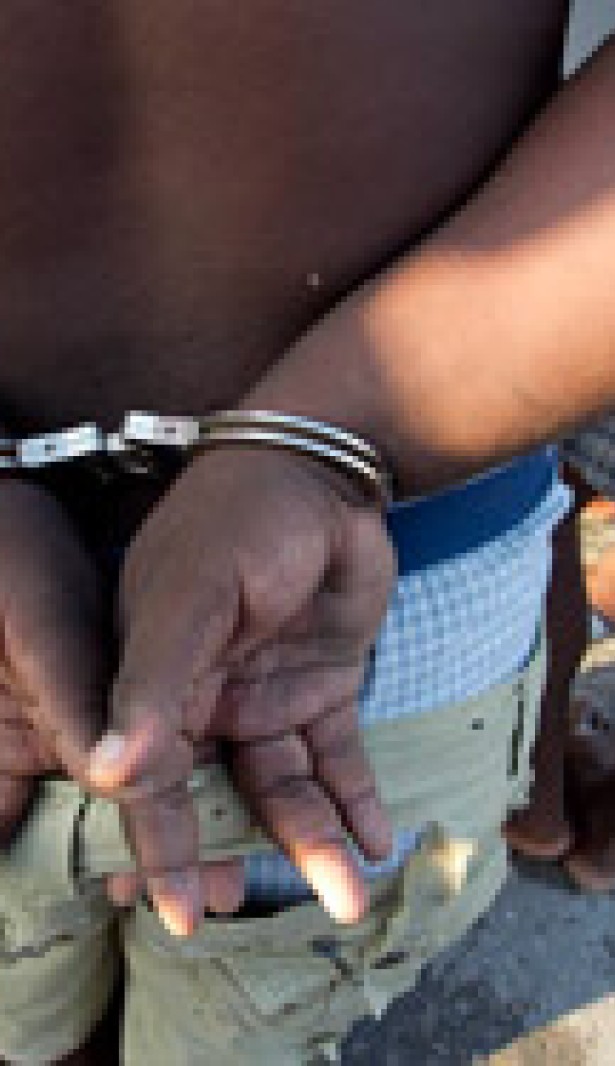An end to mob justice in Haiti
08 May 2013

On January 24 2013, a man was stoned to death in Trianon, Mirebalais, north-east of the Haitian capital, Port-au-Prince. According to preliminary information received by the Human Rights Section of the UN Stabilization Mission in Haiti (MINUSTAH)/ Office of the High Commissioner for Human Rights, the victim had been caught red-handed stealing a goat and a chicken.
According to statistics from the UN Police in Haiti (UNPOL), lynching is widespread in that country and the number of known cases increased from 90 in 2009 to 121 in 2012. However, as noted by the Secretary-General of the Lawyers' Committee for the Respect of Individual Liberties (CARLI), Renan Hedouville, it is a human rights violation and it also infringes on the presumption of innocence and the right to a just, fair and impartial trial.
"Lynching contravenes human rights, particularly the right to life guaranteed by the Universal Declaration of Human Rights in its Article 3," said the lawyer. For Hedouville, this phenomenon contributes to more violence in Haiti and creates psychosis and a climate of fear within society.
The perpetrators of lynching act on suspicion of murder, witchcraft, theft, but also kidnapping and other acts of banditry. In many cases, the victims are killed for having been caught committing petty theft, stealing food or livestock; or sometimes just because they are unknown to the area and are suspected of being ill-intentioned.
Lynching is perpetrated by ordinary citizens who are rarely brought to justice or even questioned by the police although the Haitian law equates lynching to murder, which is punishable by life imprisonment or forced labour.
The phenomenon of lynching is often seen as resulting from the failures of the justice system. The lack of access to justice and the population’s mistrust in the judiciary leads to a sense of impunity. For the Executive Secretary of the Platform of Haitian Human Rights Organizations (POHDH), Antonal Mortimé, it is that mistrust which in turn fosters ‘popular acts of vengeance’.
The Haitian government is responsible for guaranteeing the right to life for all citizens, even when suspected of having committed an offense. The Haitian government thus has a legal obligation to prevent and punish cases of lynching.
To raise awareness of the issue among people in the most remote areas and involve the local authorities to better respond to the phenomenon of lynching, a series of activities have been taking place across the country at the initiative of the Human Rights Section of MINUSTAH. A number of radio and TV programmes, as well as printed material in Creole were developed to target the regions most affected. Furthermore, MINUSTAH has reinforced the capacity of some 5500 members of the National Police and the judiciary since 2011.
Monthéliard Louinord, of the Human Rights Section of MINUSTAH based in the Artibonite, Haiti’s largest Department, called for the need to respect people’s fundamental human rights. "The right to life is the most important of all. Without it, the other rights have no raison d’être," he says. Louinord encouraged participants in various workshops to file complaints instead of taking the law into their own hands. "Mob justice is one of the worst practices in any democratic society. We must mobilize to fight this scourge."
Since January 2013, MINUSTAH-FM has been broadcasting a radio segment on lynching in Haiti. The segment was also broacast on private radio stations in the six departments where lynching is the most problematic: in the West, South, South-East, Grande Anse, Centre and North. The anti-lynching campaign is a collaborative effort between the UN Human Rights Office and the Communications and Public Information Office of MINUSTAH. In February, it dedicated one of its “Dossiers du mois” (Monthly Reports) to lynching. A story was also published in the Haitian newspaper Le Matin, and TV and radio programmes were also broadcast on national TV.
8 May 2013
MINUSTAH Report on lynching (PDF in French)
Radio spot on lynching in Haiti (mp3 in Creole)

VIEW THIS PAGE IN: